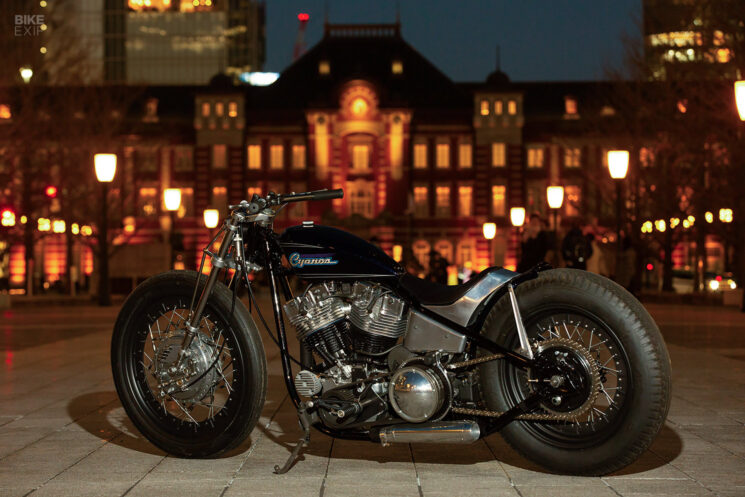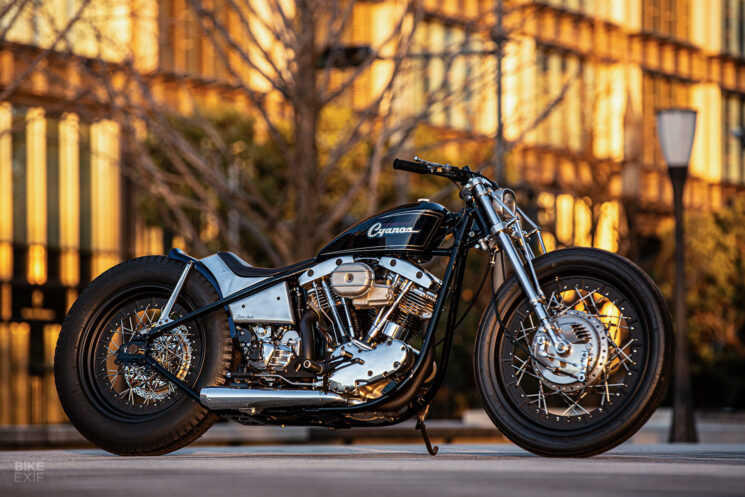
Takuya Aikawa is on a roll. There hasn’t been a running of the Yokohama Hot Rod Custom Show in the last few years that he hasn’t brought at least one medal home from. His accolades include two ‘Best of Show’ awards, a ‘Best Detail Work’ award, and a whole bunch more.
And in case you’re wondering—yes, this 1968 Harley-Davidson FL is a medal-winner too. Aikawa-san built it last year, took it to Mooneyes, and came home with the ‘Best Motorcycle American’ trophy. And it’s easy to see why.
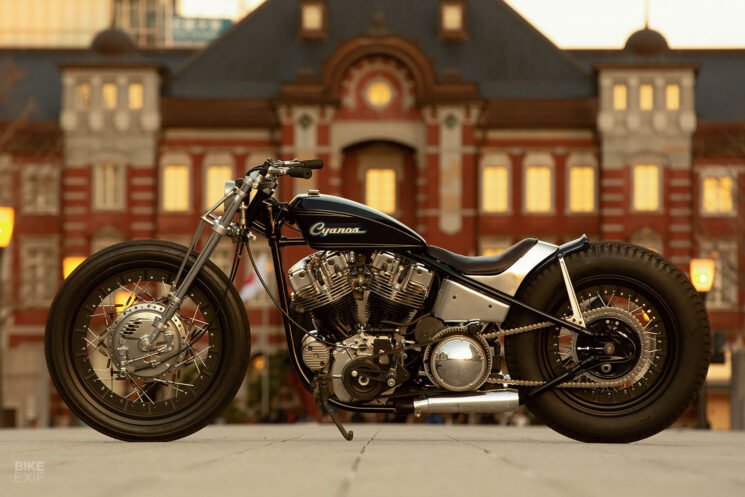
Takuya runs Sureshot—a workshop situated in Chiba, just east of Tokyo. Sureshot repairs, services, and customizes Harley-Davidsons, but their main focus is dyno tuning. That performance angle has shone through on their last few customs; lithe machines that look fast, even if they’re built using vintage donor bikes.
This old Harley shovelhead is a beguiling (and deliberate) mix of old and new. Takuya wanted to build a custom bike loaded with classy details, but he wanted to use the modern manufacturing techniques that Sureshot has employed recently to create them. The result is a stunning bike that hides an astonishing amount of ingenious details.
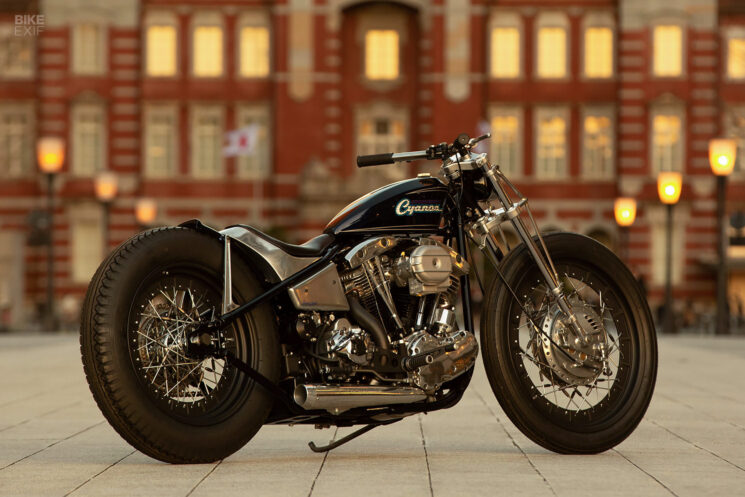
Most of those details are straight from Takuya’s imagination, since Sureshot’s client left the styling up to the workshop. His only requests were that the bike should have a rigid frame, an electric starter, and a regular foot shifter rather than a hand shifter. (He ultimately wanted the bike as easy to ride as a skinny, vintage-styled hardtail can be.)
If you’re thinking that the bike looks a lot skinnier than a 1968 Harley-Davidson FL, you’re right. Takuya mated the front half of a shovelhead frame to a rigid rear triangle, then narrowed the whole thing.
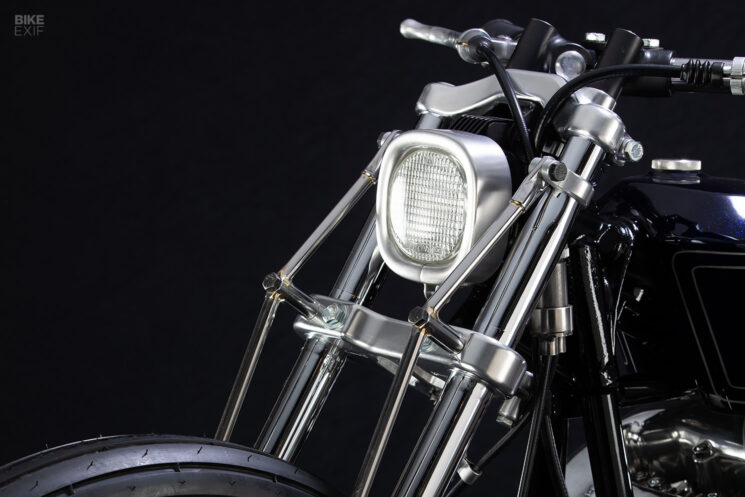
The front forks are from an ‘Auto Race’ bike. Auto Race is a Japanese form of flat track-slash-speedway racing, but it’s held on asphalt instead of dirt. As you’d imagine, transplanting the forks from a skinny Auto Race bike to a chunky vintage shovelhead was hardly a plug-and-play affair.
First, Takuya had to liberate the forks from their bottom yoke (the system is a one-piece arrangement), then lengthen the legs to suit the Harley’s ride height. Once everything was put together, he fabricated new triangular braces to sit against the forks; a direct nod to the original Auto Race fork designs.
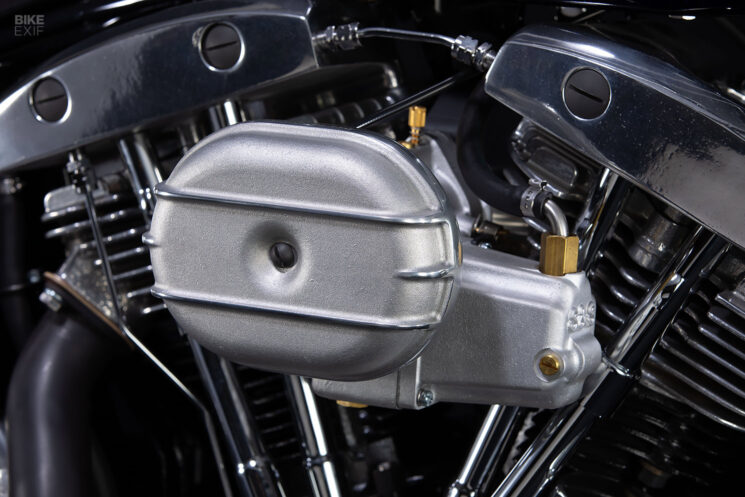
The heart of the beast is a rebuilt 1,200 cc shovelhead engine, kitted with upgraded pistons, an Andrews camshaft, and Kibblewhite valves. The brief called for a bike that would run smooth rather than hot, but Takuya still couldn’t resist tossing a beefy S&S Cycle L-carb, and a Dynatek Dyna 2000i ignition system with a bespoke map, into the mix.
“A carburetor is a functional part,” he adds. “But for Harley-Davidson, it is also a strong exterior element that evokes performance. And I’ve always been performance-oriented.”
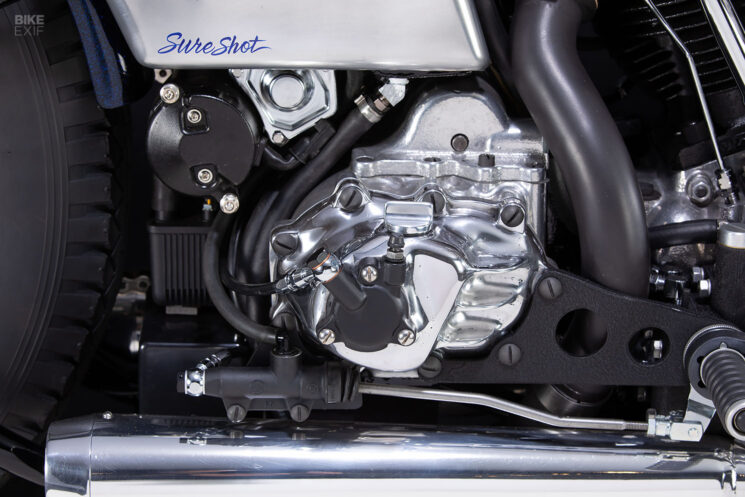
Not only did Sureshot’s client request an electric start system, but he also signed off on the removal of the kick-start lever altogether, in a bid to simplify the layout and save a little weight. That left Takuya free to experiment with an idea that he’d been sitting on for a while—relocating the transmission.
“I’ve always wanted to build a custom bike that is fun to ride,” he said. “Increasing the power of the engine is important, of course, but weight reduction and mass centralization can also make a big difference in the handling of the bike. The reason for this is that I believe that if the transmission, which is the second heaviest component after the engine, is placed closer to the engine, the mass will be more concentrated and the bike’s dynamic performance will be improved.”
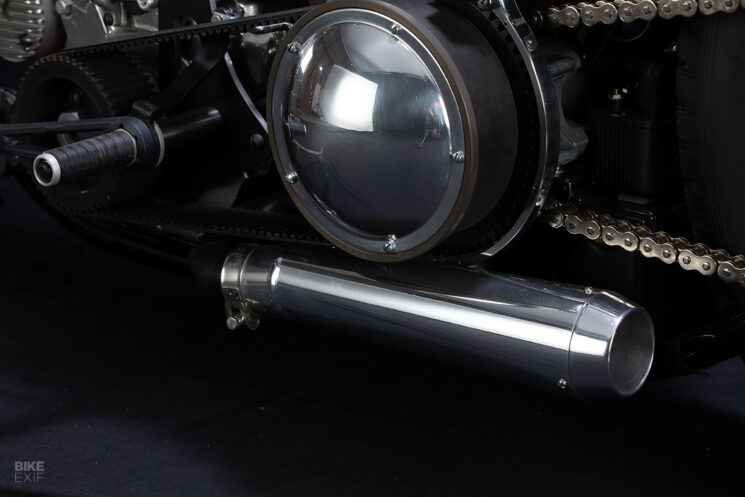
Takuya tucked the transmission in by shifting it up and forward while maintaining the length of the drive belt. That caused issues with the position of the clutch release arm, so Sureshot converted the clutch to a hydraulic system. Not wanting to stick a fluid reservoir on the handlebars, Takuya mounted the clutch master cylinder to the side of the crankcase, connecting it to a Tomaselli lever via a cable.
In a bid to optimize mass centralization even further, he also fabricated a set of matching mufflers, tucking them in tightly underneath the bike. Given the inherent architecture of the American V-twin engine, getting the mufflers to sit perfectly across from each other was no mean feat—but Sureshot pulled it off by snaking the headers tightly around the motor.
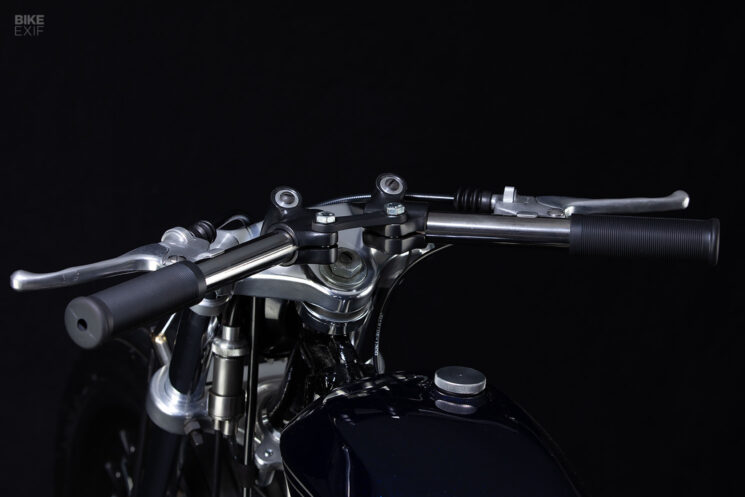
One of the shovelhead’s coolest features is also the hardest one to spot. The bike is loaded with billet aluminum parts that don’t look like billet aluminum parts. “The reason for this, is to follow a classic style,” says Takuya.
“I removed the cut marks that are characteristic of billet aluminum parts, and instead gave them a cast surface look, polished them, and rounded the edges. All of this was done by hand.”
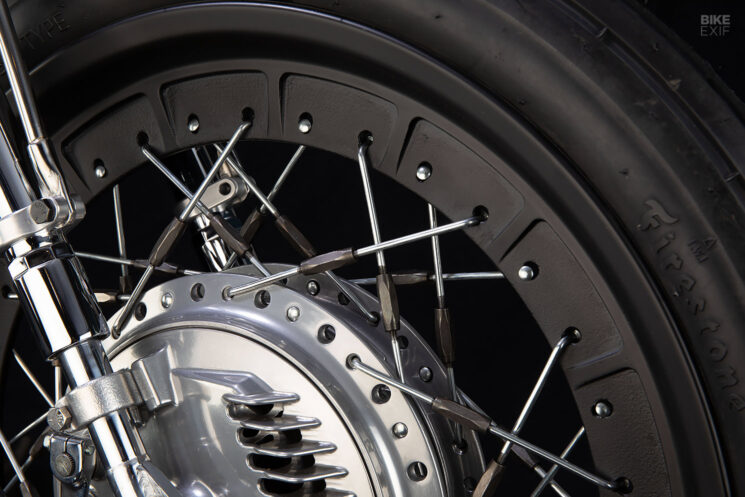
The same philosophy was applied to the wheels. Takuya started with a set of solid billet aluminum units, measuring 21” up front and 18” out back. He then cut out the middle of each wheel, machined a ridge to accommodate spokes, and then smoothed everything down to erase all traces of the machining work.
Taking inspiration from vintage Montesa trial bikes, Takuya built a set of spokes with handmade turnbuckle tensioners to lace up each wheel. The front wheel uses a twin leading shoe drum brake from an old Suzuki ST400 Tempter, while the back uses a hydraulic drum brake with a Brembo master cylinder.
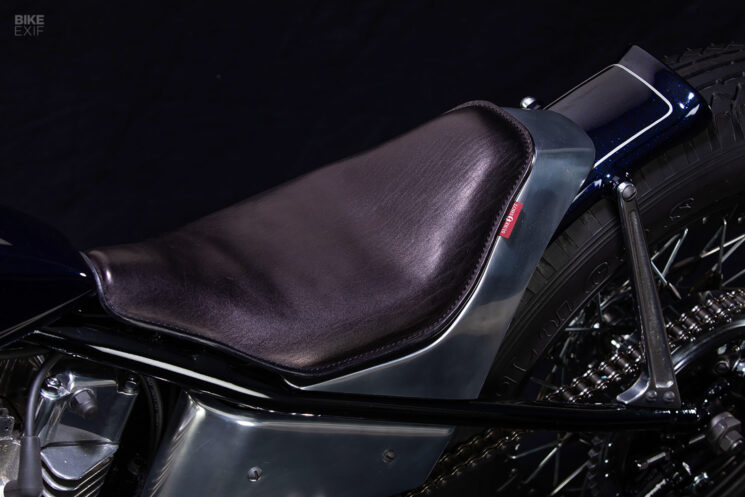
Sureshot was also responsible for the shovelhead’s sleek new aluminum bodywork—and for smaller parts like its headlight housing and unique split handlebars. The levers are welded directly to the bars for a super sano effect, while Tarozzi foot controls sit further down.
Rods Design handled the paint, Rio Studio was responsible for the logos and pin-striping, and Manabu Yamaguchi Art Craft covered the scooped bobber seat in horse hide. And this vintage shovelhead excels in all three of those areas.
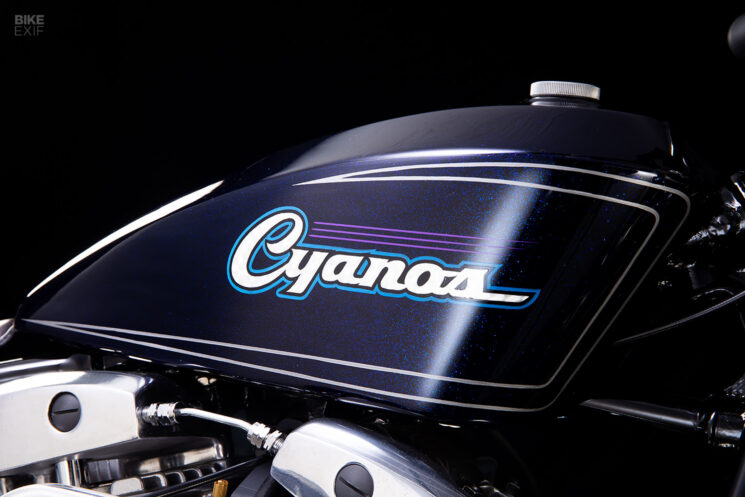
With motorcycles that look this good, is it any wonder that Aikawa-san’s trophy cabinet is getting crowded? All that’s left to do now, is wait and see what he comes up with for this year’s Mooneyes show.
Sureshot | Facebook | Instagram | Images by Makoto Morichika | With thanks to Tadashi Kono
